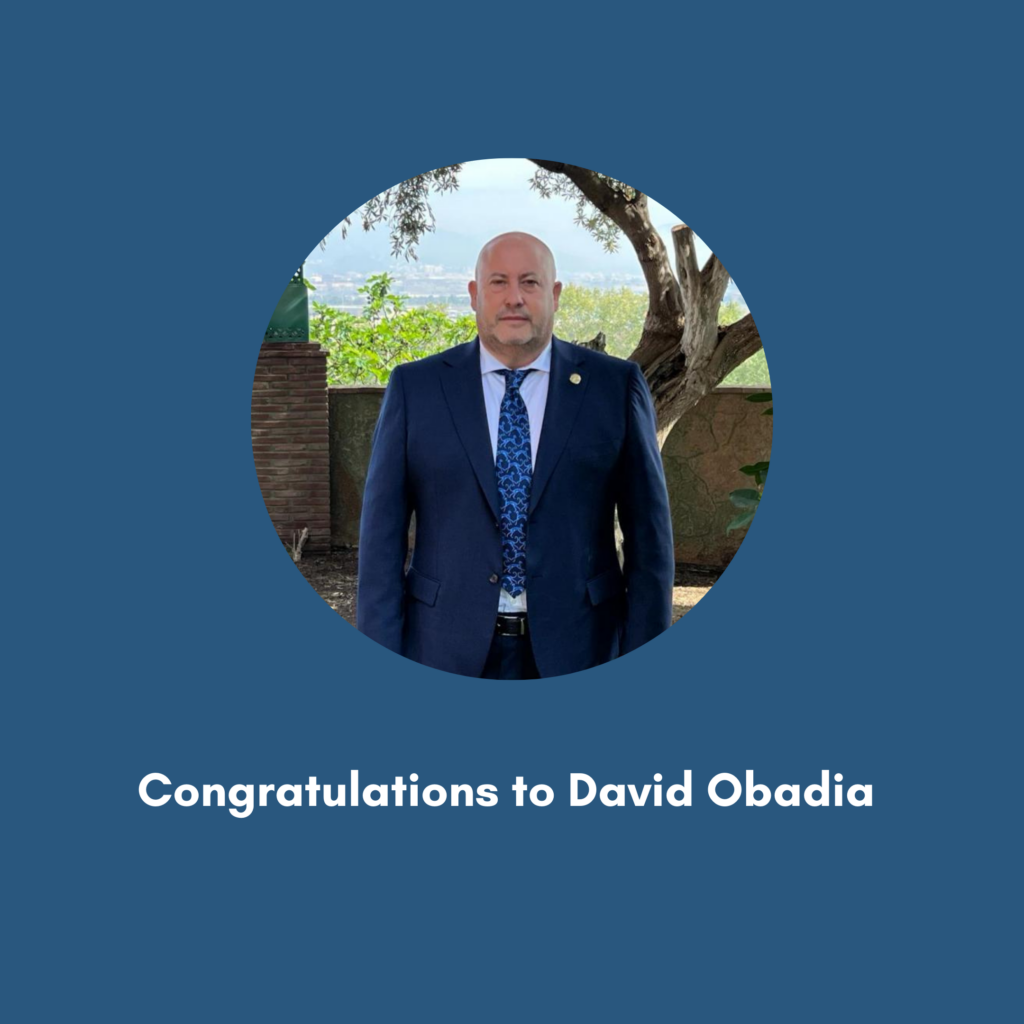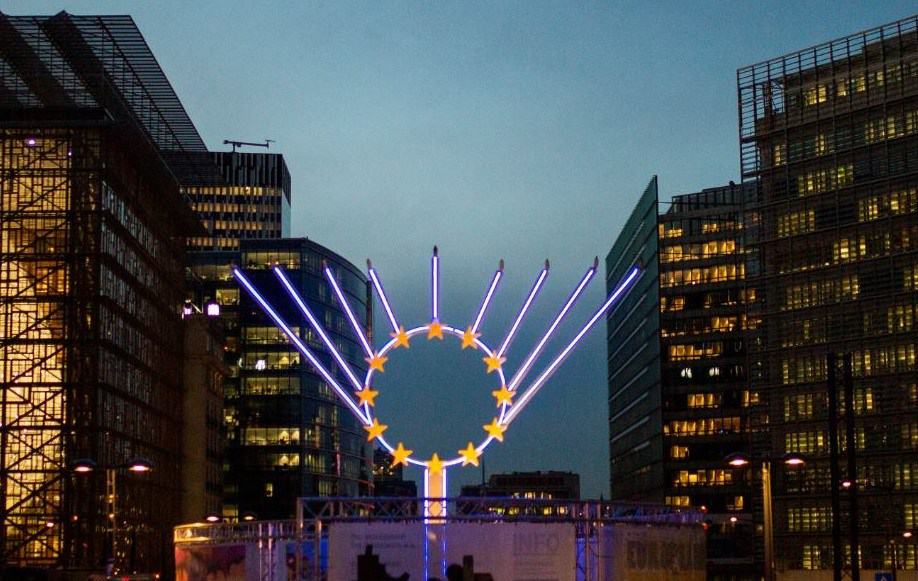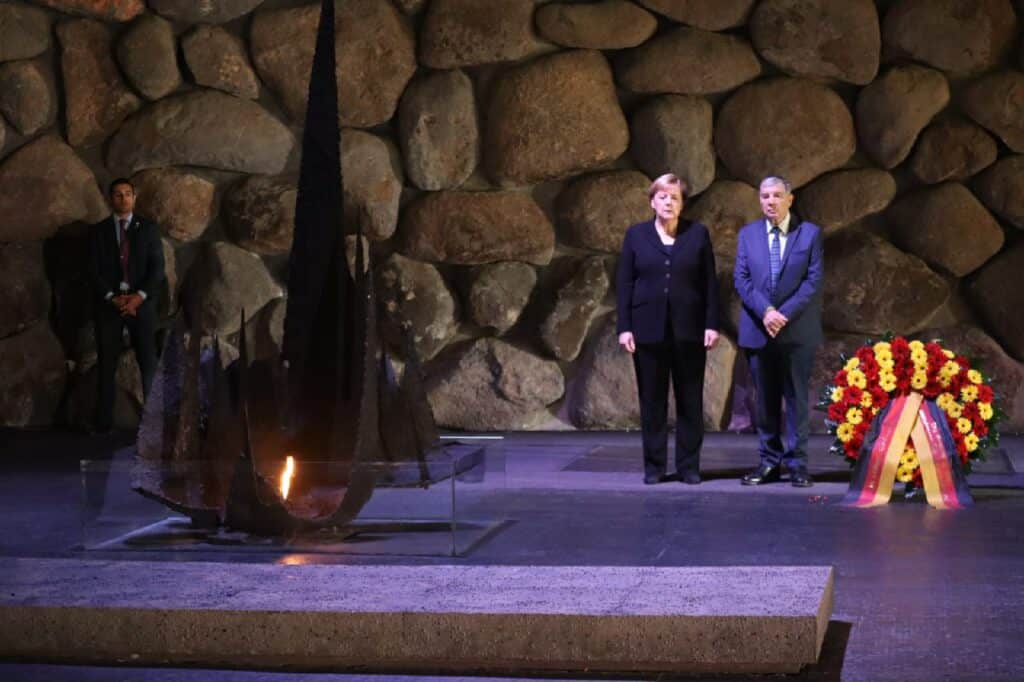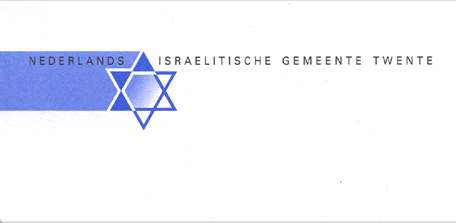The European Jewish Association welcomes the European Council declaration on fighting antisemitism that reaffirms its commitment for a common security approach in Europe to protect Jewish life and make it more visible as part of Europe’s identity.
“We welcome the acknowledgement of the European Council of the Member States shared responsibility to actively protect and support Jewish life in Europe and the acknowledgement of the contribution of Judaism and Jewish life that have indeed considerably shaped European identity and enriched Europe’s cultural, intellectual and religious heritage. We look forward to working with EU institutions and national governments across policy areas as we continue the fight against antisemitism together,” stated EJA Chairman Rabbi Menachem Margolin.
you can read more about it here:
The European Council welcomed on Friday a declaration on mainstreaming the fight against antisemitism across policy areas.
In its conclusions, the European Council condemned “all forms of attacks on the freedoms of expression and religion or belief, including antisemitism, racism and xenophobia, and underlines the importance of combating incitement to hatred and violence, as well as intolerance.”
The Declaration, which was approved last week by the Justice and Home Affairs Council, describes antisemitism as an EU-wide phenomenon and emphasises that the fight against it is a cross-cutting issue involving various levels of government and policies at local, national and European level.
The Council expressed its concern at the increase in threats to Jewish people in Europe, and the resurgence of conspiracy myths, especially in the context of the COVID-19 pandemic, as well as the increase in antisemitic incidents and hate crime.
It stresses that antisemitism has developed into various forms and must be combated with complementary public policies. Illegal hate speech and online terrorist content must be removed promptly and consistently by internet service providers. A strong and systematic judicial response to antisemitic acts is also necessary.
Education about the Holocaust, antisemitism and Jewish life remains one of the most important tools in preventing antisemitic prejudices. Sharing good practices to foster media literacy and awareness of conspiracy myths is also key.
The member states welcomed the European Commission’s decision to make the fight against antisemitism a priority, as well as the strengthening of the institutional basis for the coordinator on combating antisemitism and fostering Jewish life.
The Declaration states that, “Judaism and Jewish life have contributed considerably to shaping European identity and enriching Europe’s cultural, intellectual and religious heritage. We are grateful that 75 years after the Holocaust, Jewish life, in all its diversity, is deeply rooted and thriving again in Europe. It is our permanent, shared responsibility to actively protect and support Jewish life.”
“As a researcher on contemporary European antisemitism, I welcome the Council Declaration on the fight against antisemitism,” commented Lars Dencik, a Swedish professor in social psychology. “The appeal to fight antisemitism ‘in a holistic way’, i.e. across policy fields and member states, is highly relevant.”
“To organize systematic data collection and analysis of antisemitism across all member states would be most valuable,” he added. “To focus on the upsurge of antisemitic conspiracy myths appears also adequate and necessary. The point of actively protecting and supporting Jewish life and making it more visible as part of European identity is very well taken.”
The European Commission presented also on Wednesday a a new Counter-Terrorism Agenda for the fight against terrorism and violent extremism and boost the EU’s resilience to terrorist threats. Among others, the EU will step up efforts to ensure physical protection of public spaces including places of worship through security by design.
The Commissioner for Home Affairs, Ylva Johansson, confirmed at a press conference that special resources will be dedicated to protect churches, mosques and synagogues. “We are giving cities the means to protect open public spaces through good design and we are ensuring that we can respond quickly and more efficiently to attacks and attempted attacks.”
Preventing attacks by addressing radicalisation and countering spread of extremist ideologies online is important and the Commission proposes to adopt rules on removing terrorist content online as a matter of urgency. The same goes for antisemitic hate speech, according to the Council Declaration.
“Antisemitic hate speech, including public condoning, denying or grossly trivialising the Holocaust, is increasingly influential and is shared online often without any consequences for those who produce and/or disseminate it. Crimes committed online should be punished just as crimes offline are and must be adequately addressed by means of effective prosecution and other measures.”
The Declaration underlines that The Council Framework Decision on combating certain forms and expressions of racism and xenophobia by means of criminal law (2008/913/JHA) must be transposed and effectively implemented by the Member States, including for crimes committed on the internet.
New forms of antisemitism
Dencik, the researcher of antisemitism, is sceptical and thinks that it borders on wishful thinking to have global internet providers monitoring and removing hate speech on their platforms. He adds that somewhat unnoticed in the Council Declaration are emerging problems of “antisemitism in disguise” and “latent antisemitism” and refers to conspiracy theories and attacks on individual Jews and Jewish institution emanating from hatred against Israel.
The Declaration does mention that recent studies, for example by the European Agency for Fundamental Rights (FRA), show that antisemitism in all its forms is increasingly prevalent in Europe.
Reaffirming their commitment to a previous Council declaration in December 2018 on the fight against antisemitism, the EU member states also referred to the non-legally binding working definition of antisemitism employed by the International Holocaust Remembrance Alliance (IHRA).
“We welcome the fact that 18 Member States have already followed up on the Council declaration of 6 December 2018 by endorsing the IHRA working definition as a useful guidance tool in education and training. Member States that have not yet done so are invited to join the other Member States and endorse the IHRA working definition as soon as possible.”
The borderline between antisemitism and legitimate criticism of Israel and its government is often blurred and has become politicized, including in Israel. “Criticism of Israel similar to that levelled against any other country cannot be regarded as antisemitic,” says the definition and distinguishes between legitimate criticism and verbal attacks against Israel that might be fuelled by antisemitism and antisemitic stereotypes.
The list of such examples includes denying the Jewish people their right to self-determination, accusing Israel of inventing or exaggerating the Holocaust, drawing comparisons of contemporary Israeli policy to that of the Nazis, and applying double standards by requiring of Israel a behaviour not expected or demanded of any other democratic nation.
The Commission has been forced to strengthen the fight against antisemitism almost every year. “The 20th century had many deseases. The only on that remained incurable is antisemitism,” Commission Executive Vice-President Frans Timmermans said in 2018. He criticised some EU member states for their identity politics. “If you choose identity policy, it will sooner or later refer to minorities and the first minority to be hit is the Jews.”
Read More














